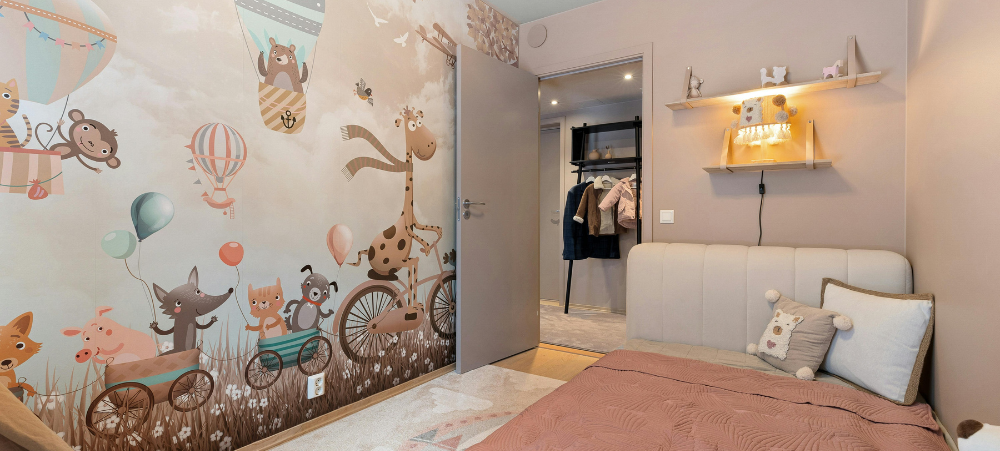Giving birth to your firstborn child sees you worrying about how and what to do right as you find your feet and transition into first-time parent mode. Welcoming your second child into your new family, you will be backed by prior experience to support you in your new role as family ‘multi-tasker’ as you embrace managing the love, care, feeding, soothing, and sleeping of 2 under 2!
Welcoming in a second child will be different for every family. Each child is born distinctive from their sibling and your role as mother or father becomes a balancing act which may take time to adjust to.
What is true for all second-time parents is that with increased time pressures, there are higher stress levels mothering two children who need round the clock care. Now, instead of taking naps alongside your newborn you will be spending precious time with your toddler.
Happily, in the changing world around us, traditional gender roles are evolving as Dads help more around the home and do a lot to ease motherhood for mum’s post the birthing process. Partners may bring their boardroom logic into crises managing a moment with quick thinking and the most direct solution when your toddler and baby are both demanding – at full volume – to be fed!
Parenting routines and caring for your kids may come first, and taking time for things other than motherhood at this challenging stage can seem unrealistic but like a diamond is pressured into pure sparkling beauty, it is also an opportunity for you as new mums and dads to set routines, prep meals, and delegate responsibilities with the right tools on hand so you can still carve out space in the day to connect with your partner or spouse, take a restorative five minute walk around the block, or journal in your diary.
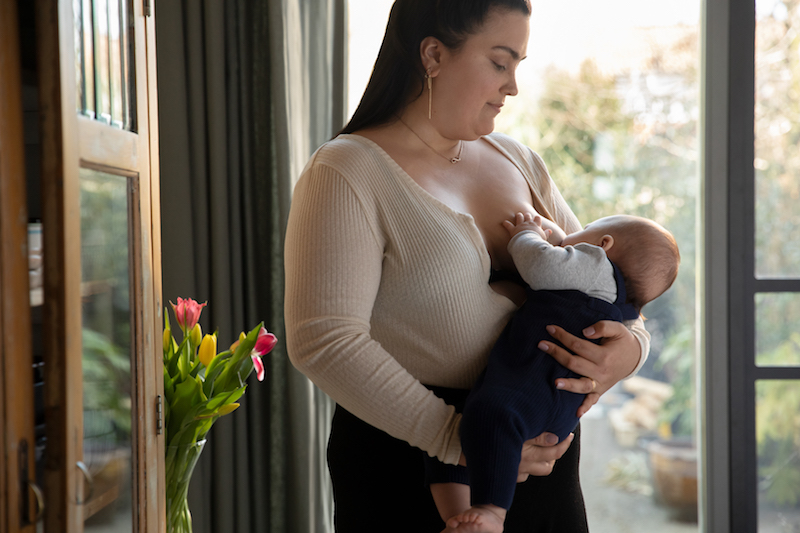
Philips Avent South Africa share some life tips and home hacks to grounding your new family in a harmonious home routine and setting the perfect scene for both your tiny tykes to grow and thrive:
#1 Home Coming & Family introductions:
Even kids as young as 18 months to 2 years can feel that things are changing. Prepare your firstborn child for your new arrival into the family only when the time is right and you feel ready to do so.
Introduce the idea to your toddler that baby will be someone new to love, and that having a sibling is a privilege and a gift and they can be excited having a new role as an older sibling. Don’t oversell the idea however as you may set them up for rivalry.
#2 Home Help Routine:
Once your newborn has been introduced home, set up your new routines as soon as possible, by aligning feeding and nap times as much as possible to avoid double duty during the day.
Second time Mum Sandy (33) claims her superpowers of adaptation saw her master the art of breastfeeding her newborn and spoon feeding her toddler at the same time. She suggests that for whichever task you avoid or dislike the most, this is the area to adapt and master. “I felt challenged by breastfeeding as I had sore, cracked nipples making it painful, and uncomfortable to feed either of my sons so much so that I would dread feeding times!
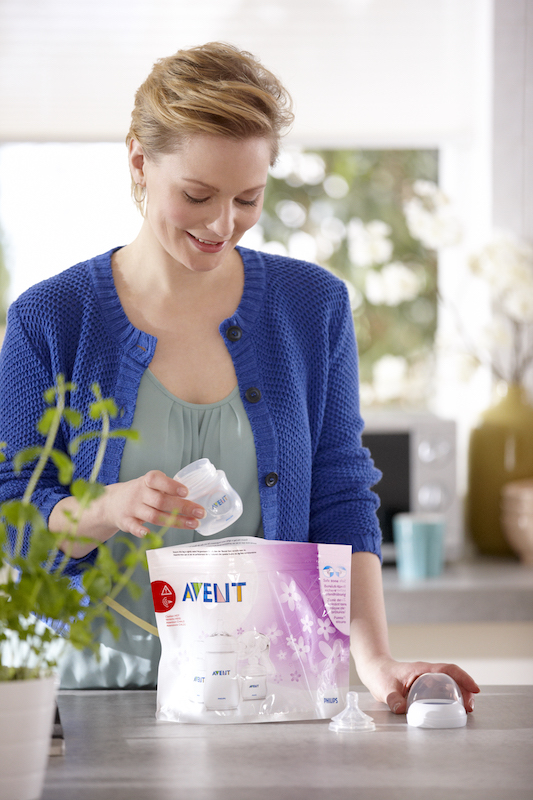 “I was ecstatic when I discovered Philips Avent nipple shields, they protected my scabbed, sensitive nipples so they could recover and I could breastfeed again. Nipple shields made all the difference, thank goodness.”
“I was ecstatic when I discovered Philips Avent nipple shields, they protected my scabbed, sensitive nipples so they could recover and I could breastfeed again. Nipple shields made all the difference, thank goodness.”
Breastfeeding your newborn should be your priority, with proper latching and full feeds at correct times. For working mums, you newborn and toddler can still benefit from breastmilk when you master the art of breastmilk pumping to ensure you have milk stored in milk storage bags in the freezer. These can be defrosted for feeds for your newborn by Dad or other caregivers or used for meal top ups of breastmilk for your firstborn toddler.
Having the right tools to soothe and protect your breasts and efficiently pump your breastmilk makes it easier to stay comfortable and continue breastfeeding until the minimum 24-month breastfeeding period has been reached.
#3 Planning & Prepping Meals
In the new era of breast pumping, both the Philips Avent manual and electric breast pumps are quiet, and you can stay positioned upright allowing you to continue pumping and feeding, providing the necessary elixir of breastmilk that your children require during the day. Small and inconspicuous, both the Philips Avent manual breast pump and the Philips Avent electric breast pump will easily fits into your bag when you are on the go.
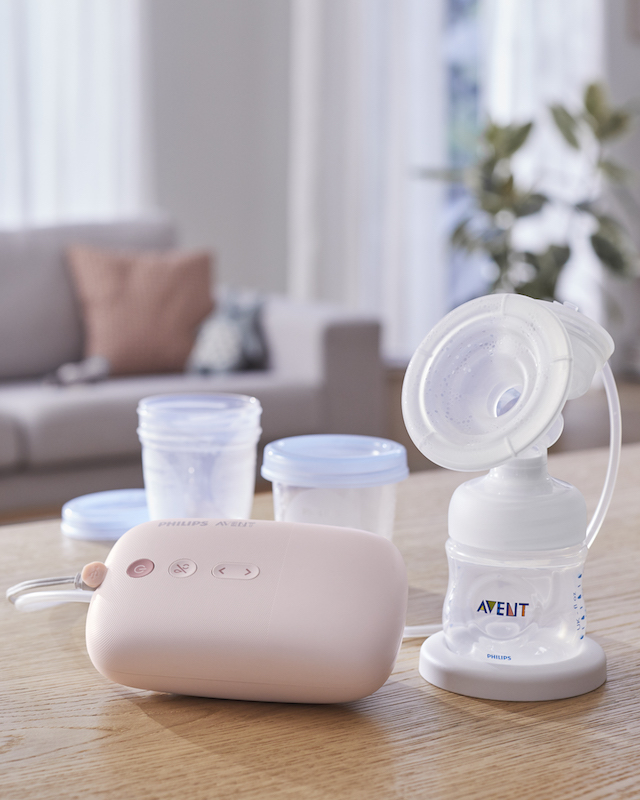 The Philips Avent Natural baby bottle is designed for mums who want to combine breast and bottle feeding, with its soft, breast-shaped teat which encourages a natural latch and mimics the feel of a breast, making the switch between breast and bottle as smooth as possible for you and your baby and other parents and caregivers to step in for supported feeds.
The Philips Avent Natural baby bottle is designed for mums who want to combine breast and bottle feeding, with its soft, breast-shaped teat which encourages a natural latch and mimics the feel of a breast, making the switch between breast and bottle as smooth as possible for you and your baby and other parents and caregivers to step in for supported feeds.
The spiral design of the teat and petals ensure it naturally flexes and doesn’t collapse when your little one is feeding, so your baby can enjoy an uninterrupted feed. More importantly the anti-colic valve in the Philips Avent Natural baby bottle is designed to reduce colic and discomfort by venting air into the bottle and away from your baby’s tummy for 60% less fussing at night.
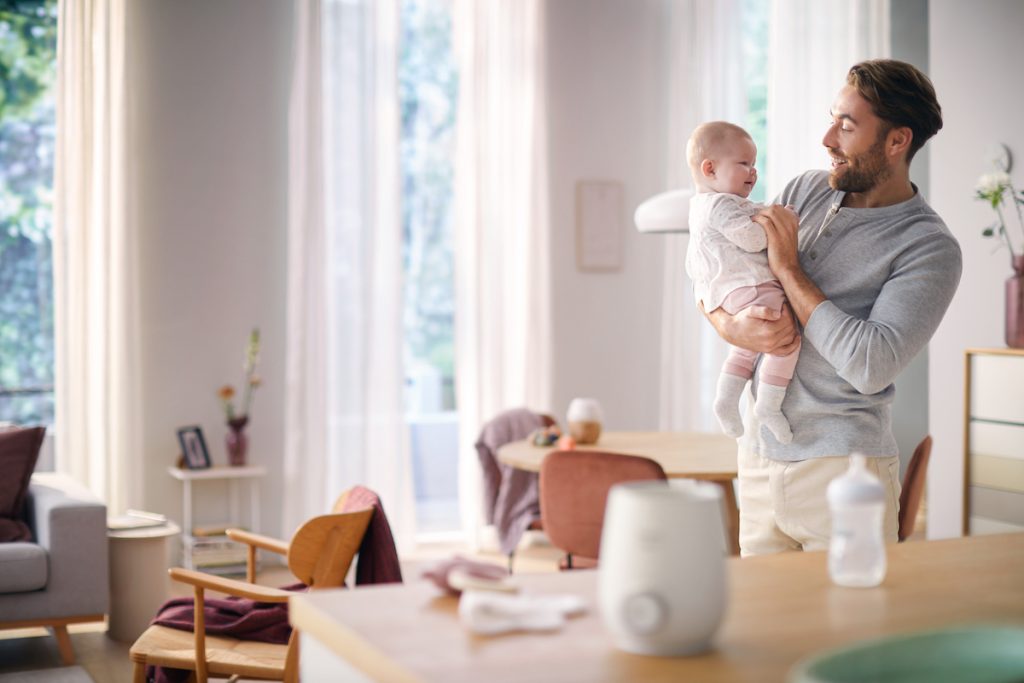 Generally, after the first month, babies gain an average of 500g to 1 kilogram per month within the first six months. Breast milk is the ideal first food, but beyond this stage, both milk and solid foods are needed to help your baby grow and continue to gain around 2 kilograms per month.
Generally, after the first month, babies gain an average of 500g to 1 kilogram per month within the first six months. Breast milk is the ideal first food, but beyond this stage, both milk and solid foods are needed to help your baby grow and continue to gain around 2 kilograms per month.
Many babies are happy to wait until around six months to begin weaning and at this age can learn the skills needed for eating solid food very quickly especially if there is an older brother or sister to mimic at feeding times.
However, babies develop at different rates depending on genetics and gestation in the womb. Meet your regular clinic checkups for weighing and vaccinations and chat to your clinic’s nursing Sister.
Just be sure not to start your baby on foods other than milk before they’re six months old as their kidneys and digestive system won’t be fully developed enough to digest it.
#4 Fun Not Fussy Family Food:
Try to have at least one relaxing meal per day together as a family as this gives kids the opportunity to learn weaning skills and family communication. The core of family life usually takes place in the kitchen and around the table at meals.
Hydration is essential for growth. Children especially need to stay well hydrated as it improves mood, memory, and attention in children, as well as adults, so Moms need to stay hydrated too, especially during breastfeeding.
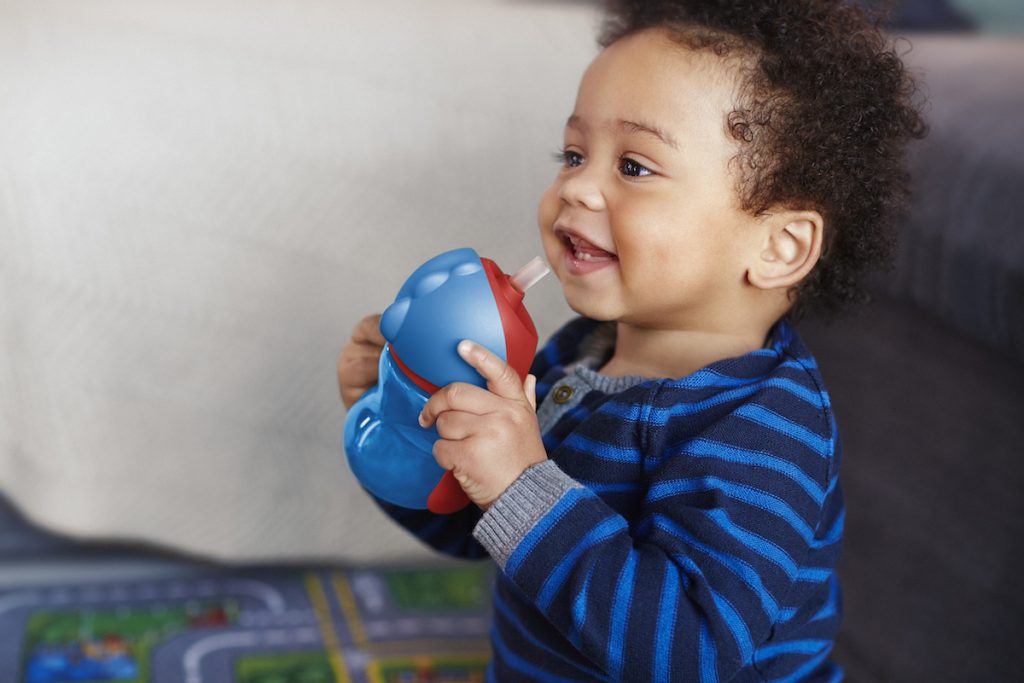 Make it easy for your toddler to learn how to hydrate himself with a fun sippy cup.
Make it easy for your toddler to learn how to hydrate himself with a fun sippy cup.
All Philips Avent bottles and cups are compatible excluding the glass bottles and the Grown-up cups/My First Big Kid Cups, so you can mix and match to create the perfect cup, suiting your toddler’s individual development needs.
You should offer your toddler six to eight drinks (around 100-120 ml) per day with meals and snacks. More drinks may be needed in very hot weather and after physical play or activities. The best drinks to give your toddler between and during meals and snacks are water and milk as they do not damage their teeth. You can flavour water with a slice of fresh cucumber or watermelon.
Toddlers and weaning babies often prefer raw to cooked vegetables. Keep some aside while prepping and cooking and offer them to your kids if they get hungry between meals along with small cheeses and tasty dips. It is also a great way to encourage a love of vegetables and establish a healthy diet from the start.
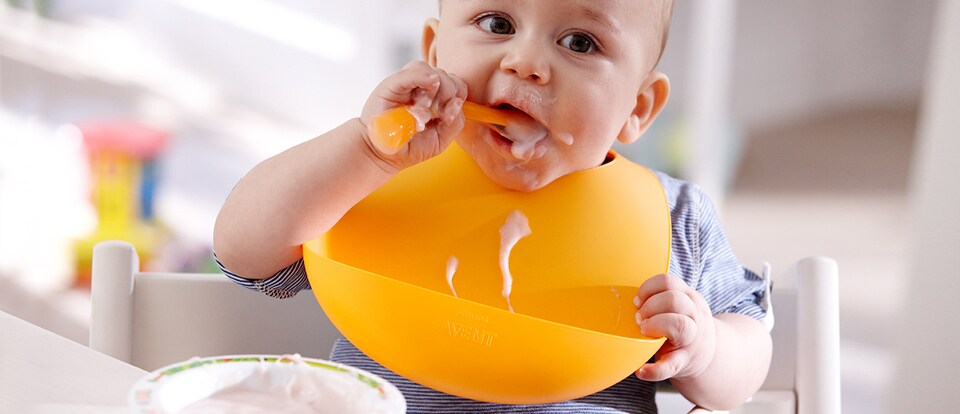 Ensure you are offering adequate nutrition at mealtimes by blending vegetables into dips, soups and sauces for rice, potatoes, and meat. In the same way you can offer a variety of fruits in milkshakes, smoothies, ice lollies or freshly blended fruits mixed into yoghurt.
Ensure you are offering adequate nutrition at mealtimes by blending vegetables into dips, soups and sauces for rice, potatoes, and meat. In the same way you can offer a variety of fruits in milkshakes, smoothies, ice lollies or freshly blended fruits mixed into yoghurt.
Life doesn’t stop with two toddlers on the go and family holiday trips will still be a part of your routine. The Philips Avent travel feeding set for 6+ months includes an integrated weaning spoon and a suction mat to prevent spills. It is the perfect travel companion for any mum on the go offering one large, sectioned feeding dish with lid and two removable, individual dishes with lids that are perfect for snacks or smaller feeding portions, meaning greater convenience for mealtimes.
#5 Hygiene Happy Homes
Sterilising your feeding equipment for the first six months protects your baby from harmful germs until your little one’s immune system has matured and grown stronger. Most health professionals advise sterilising feeding equipment and utensils until baby is between 6 months and one year old, especially if your child’s immunity is impaired due to illness.
The ultra-fast and convenient three tier Philips Avent Digital Steam Steriliser is big enough for 2 under 2’s bottles, teats and soothers to be stacked and steamed while the Philips Avent Microwave Steam Sterilizer’s lightweight, compact design makes it ideal for use in and out of the home, with the contents remaining sterile for up to 24 hours if the lid is unopened.
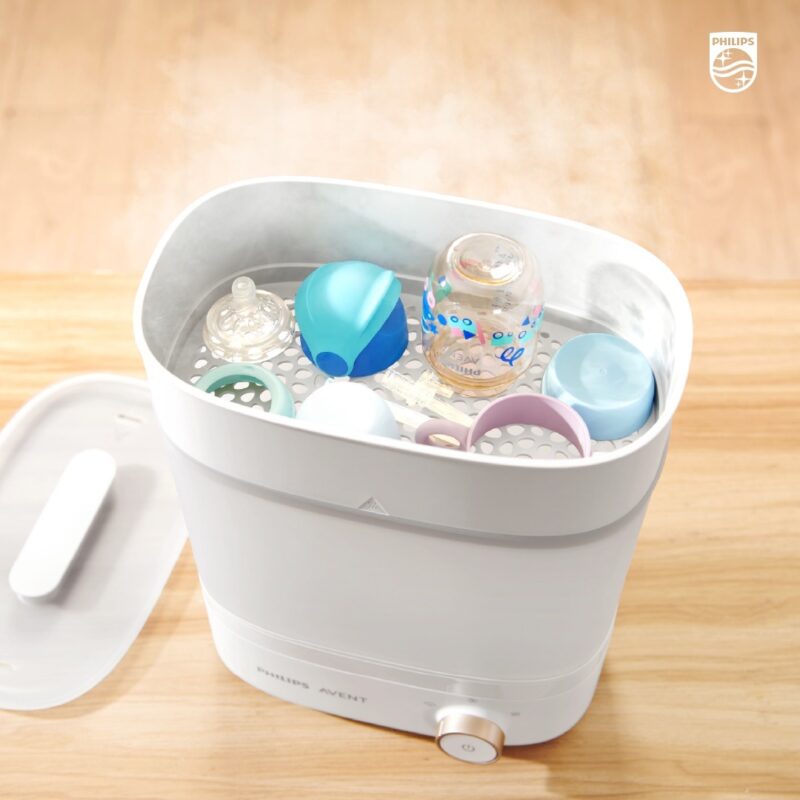 You can also boil feeding equipment in a pot on the stove for at least 10 minutes, making sure all equipment stays submerged. Remember to set a timer so you don’t over boil teats which can get damaged faster with this method. Regularly check that teats and bottles are not torn, cracked or damaged.
You can also boil feeding equipment in a pot on the stove for at least 10 minutes, making sure all equipment stays submerged. Remember to set a timer so you don’t over boil teats which can get damaged faster with this method. Regularly check that teats and bottles are not torn, cracked or damaged.
#6 Calm & Comfort
One thing your two tots will love doing together is having their own themed soother to calm and pacify them with its time to settle down for a nap.
With a full range of sizes, colours and themes, you may want to start off with the Mini Orthodontic Soother for newborns. Developed by Philips Avent for tiny babies, it supports an infant’s innate non-nutritive sucking response, and can be introduced at the earliest stages to help strengthen their mouth and jaw muscles.
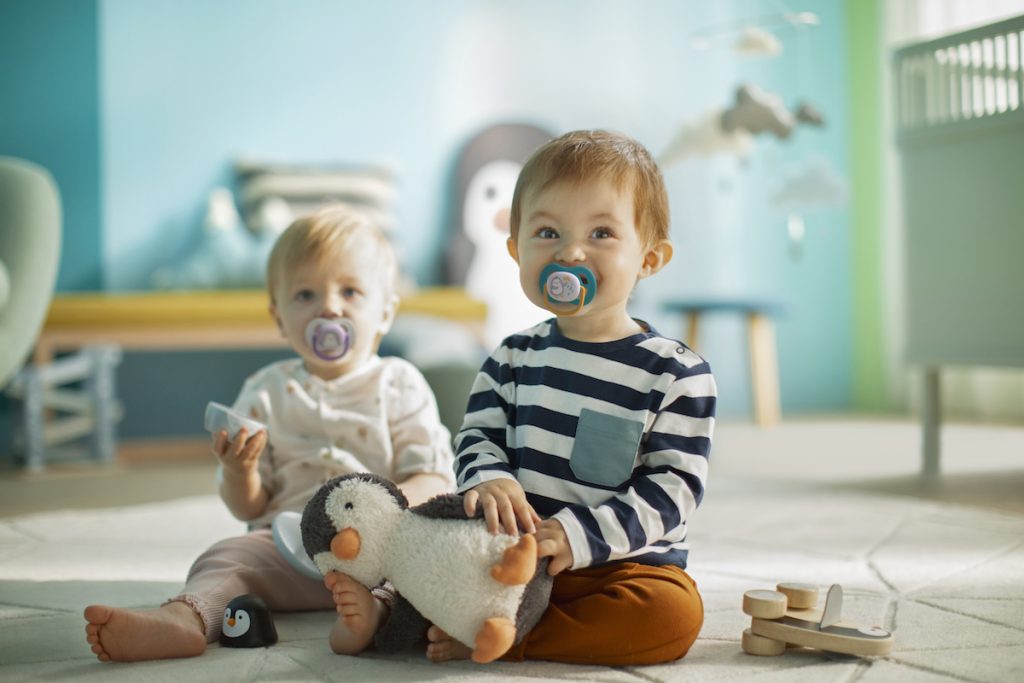 Made to fit newborns perfectly, this small soother acts as an exceptional bridge from hospital to home, and is a soother that fits a newborn mouth perfectly, without touching the nose. Its advanced orthodontic teat with unique wings minimizes pressure on gums and developing teeth. The wings make the teat wider so that the pressure that is caused by baby’s suckling is distributed more evenly.
Made to fit newborns perfectly, this small soother acts as an exceptional bridge from hospital to home, and is a soother that fits a newborn mouth perfectly, without touching the nose. Its advanced orthodontic teat with unique wings minimizes pressure on gums and developing teeth. The wings make the teat wider so that the pressure that is caused by baby’s suckling is distributed more evenly.
The Philips Avent Soothie pacifier for toddlers comes in packs of two, is very reasonably priced, and can be purchased in multiple colors. They’re durable, easy to handle, and easy to clean, too. Find the full range of pacifiers including Mini, Classic and FreeFlow soothers to support your young family through their developmental stages.
#7 Final Word
The initial two-toddler phase will fly by, so enjoy the pure unpredictability of life and remember moments of self-care.
When it comes to back to work for Dads and sometimes Mums too, make sure to consider all your childcare options. If you are getting a carer or family member to support you, make sure to introduce them to your routine, demonstrate how to use and sterilise feeding equipment and enjoy the support of an extra pair of helping hands around the home.
Moms populate the world, so remember that makes you a Superhero and you count!
Take your confidence with you with the professional care and support of Philips Avent South Africa for a healthy start and a healthy future for you and the whole family.
Stockists:
Baby City, Woolworths, www.dischem.co.za, Babies R Us or online at www.takealot.com or www.medhealthsup.com
Find the baby+ and pregnancy+ app’s FREE on the Google play or Apple App Store.
Facebook: @philipsaventsouthafrica
Instagram: philipsaventsa
Website: https://www.philips.co.za/c-m-mo/philips-avent
The range includes breastfeeding, bottle feeding, toddler feeding, baby monitors and newborn gifts.
Philips Avent products are all designed to fit your busy life and make it easier for you to make the best feeding choices.
- Affordable ways to maximise your nutrition during pregnancy - April 3, 2024
- How to exercise with baby in tow - November 15, 2023
- Emotional Health during pregnancy - August 17, 2023



